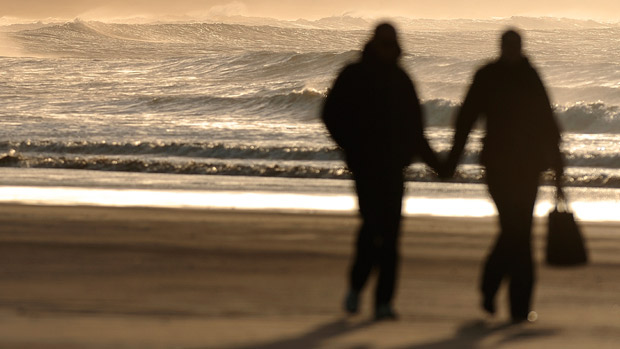Incest 'a fundamental right', says German Ethics Council
Advisory group says practice should be decriminalised as it isn't up to the courts to uphold social taboos

A free daily email with the biggest news stories of the day – and the best features from TheWeek.com
You are now subscribed
Your newsletter sign-up was successful
Sexual relationships between siblings should not be illegal, the German Ethics Council has ruled.
The advisory group, made up of prominent scientists, doctors, academics and lawyers, will make the recommendation to the German government after deciding that incest – when occurring between consenting adult siblings – is a fundamental right.
They argue that it should not be up to the courts to uphold social taboos or decide what consenting adults are allowed to do.
The Week
Escape your echo chamber. Get the facts behind the news, plus analysis from multiple perspectives.

Sign up for The Week's Free Newsletters
From our morning news briefing to a weekly Good News Newsletter, get the best of The Week delivered directly to your inbox.
From our morning news briefing to a weekly Good News Newsletter, get the best of The Week delivered directly to your inbox.
"The fundamental right of adult siblings to sexual self-determination is to be weighed more heavily than the abstract idea of protection of the family," they said in a statement according to the German news site The Local.
The ethics review was ordered in the wake of a European Court of Human Rights ruling against a German man known as Patrick S, whose case has generated much public debate on the issue. Patrick has four children, two of whom are disabled, with his biological sister.
The ethics committee said the siblings they interviewed described how difficult life was under current law. "They feel that their basic rights are not respected and [they are] forced into secrecy or denial of their love," it said.
Incest is illegal in most countries in the world, including the UK, where in 2004 the law was tightened to include not only blood relatives, but also foster and adoptive parents and live-in partners.
A free daily email with the biggest news stories of the day – and the best features from TheWeek.com
Opponents of decriminalisation cite the genetic risks of incest, as closely related parents will produce children with less diversity in their DNA which increases their chances of having rare genetic diseases, as well as mental and physical disabilities.
While the committee found that the choice of sexual partner was a fundamental right, The Guardian's Paul Behrens argues that "human rights come with limitations." But he concedes that the debate about the criminality of incest is far from over.
Angela Merkel's Christian Democrat government is unlikely to adopt the measures, according to her spokesperson. "Eliminating the threat of punishment against incestuous acts within families would run counter to the protection of undisturbed development for children," she said.